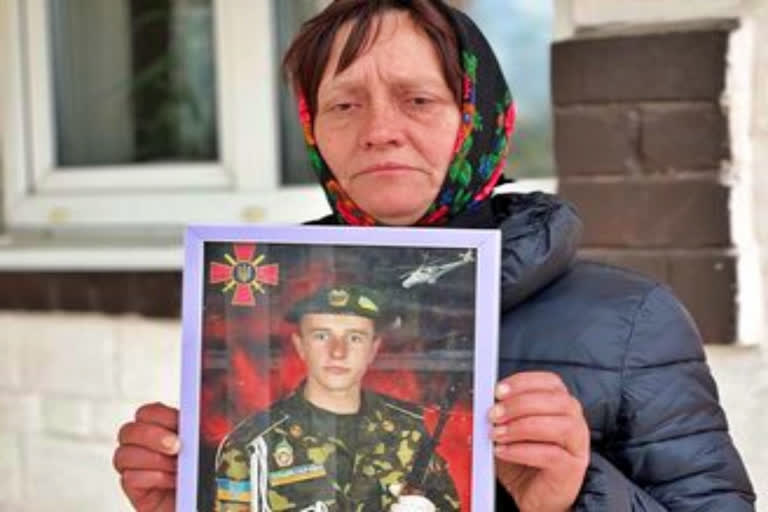Kyiv:Ten months into Russia's latest invasion of Ukraine, overwhelming evidence shows the Kremlin's troops have waged total war, with disregard for international laws governing the treatment of civilians and conduct on the battlefield. Ukraine is investigating more than 58,000 potential Russian war crimes killings, kidnappings, indiscriminate bombings and sexual assaults.
Reporting by The Associated Press and Frontline, recorded in a public database, has independently verified more than 600 incidents that appear to violate the laws of war. Some of those attacks were massacres that killed dozens or hundreds of civilians and as a totality, it could account for thousands of individual war crimes.
As Karim Khan, chief prosecutor of the International Criminal Court in The Hague, told the AP, Ukraine is a crime scene. That extensive documentation has run smack into a hard reality, however. While authorities have amassed a staggering amount of evidence the conflict is among the most documented in human history they are unlikely to arrest most of those who pulled the trigger or gave the beatings anytime soon, let alone the commanders who gave the orders and political leaders who sanctioned the attacks.
The reasons are manifold, experts say. Ukrainian authorities face serious challenges in gathering air-tight evidence in a war zone. And the vast majority of alleged war criminals have evaded capture and are safely behind Russian lines. Even in successful prosecutions, the limits of justice so far are glaring.
Take the case of Vadim Shishimarin, a baby-faced 21-year-old tank commander who was the first Russian tried on war crimes charges. He surrendered in March and pleaded guilty in a Kyiv courtroom in May to shooting a 62-year-old Ukrainian civilian in the head. The desire for some combination of justice and vengeance was palpable in that courtroom. Do you consider yourself a murderer? a woman shouted at the Russian as he stood bent forward with his head resting against the glass of the cage he was locked in.
What about the man in the coffin? came another, sharper voice. A third demanded the defence lawyer explain how he could fight for the Russian's freedom. The young soldier was first sentenced to life in prison, which was reduced to 15 years on appeal. Critics said the initial penalty was unduly harsh, given that he confessed to the crime, said he was following orders and expressed remorse.
Ukrainian prosecutors, however, have not yet been able to charge Shishimarin's commanders or those who oversaw him. Since March, Ukraine has named more than 600 Russians, many of them high-ranking political and military officials, as suspects, including Minister of Defence Sergei Shoigu. But, so far, the most powerful have not fallen into Ukrainian custody.
It would be terrible to find a scenario in which, in the end, you convict a few people of war crimes and crimes against humanity who are low-grade or mid-grade military types or paramilitary types, but the top table gets off scot-free, said Philippe Sands, a prominent British human rights lawyer.
